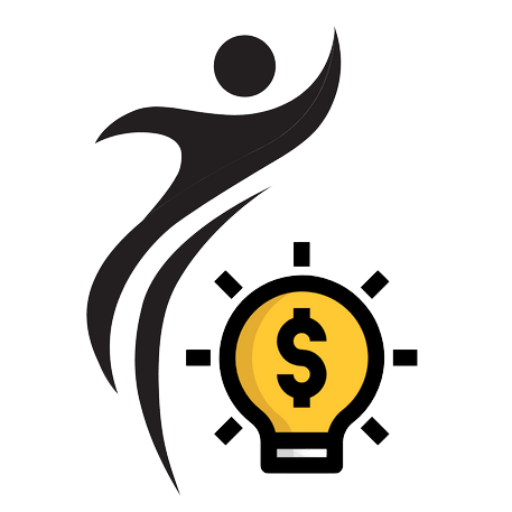Understanding Concussions | Causes, Prevention, and More
In this comprehensive guide, we delve deep into the world of concussions, shedding light on their causes, prevention strategies, and the importance of proper management. Concussions are a topic of increasing concern, and with this article, we aim to provide you with a wealth of information that will not only educate but empower you to make informed decisions about your health and safety.
%20(1080%20%C3%97%201080%20px)%20(1717%20%C3%97%201060%20px)%20(Facebook%20Cover)%20(3).jpg) |
| Understanding Concussions | Causes, Prevention, and More |
Introduction
Concussions, commonly referred to as mild traumatic brain injuries (mTBIs), have gained significant attention in recent years due to their prevalence, particularly among athletes and individuals involved in high-impact activities.
Understanding the causes, recognizing the symptoms, and implementing effective prevention measures are crucial steps toward mitigating the risks associated with concussions.
What Are Concussions?
 |
| What Are Concussions? |
Concussions are traumatic brain injuries resulting from a sudden impact or blow to the head or body. These injuries can occur in various settings, including sports, accidents, and falls.
The brain, a delicate organ, can sustain damage when it undergoes rapid acceleration or deceleration within the skull. This sudden movement can lead to a range of symptoms, both immediate and delayed.
Causes of Concussions
Concussions can occur in a multitude of situations, but some common causes include:
-
Sports Injuries: High-impact sports such as football, soccer, and boxing carry an inherent risk of concussion due to collisions and falls.
-
Automobile Accidents: Car accidents can result in head injuries, particularly when seat belts are not worn or airbags fail to deploy.
-
Falls: Slipping and falling, especially in older adults, can lead to head injuries that result in concussions.
-
-
Assaults: Physical altercations or assaults can lead to head trauma and concussions.
-
Military Combat: Military personnel are at risk of concussions due to explosions and blast injuries.
Recognizing Concussion Symptoms
Recognizing the signs and symptoms of a concussion is crucial for timely diagnosis and treatment. Common symptoms include:
- Headaches
- Dizziness
- Nausea
- Confusion
- Sensitivity to light and noise
- Memory problems
- Fatigue
- Mood swings
It is essential to seek immediate medical attention if you or someone you know experiences these symptoms following a head injury.
Prevention Strategies
Preventing concussions involves a combination of awareness, safety measures, and responsible behavior. Some key strategies include:
1. Protective Gear
In high-impact sports and activities, wearing appropriate protective gear, such as helmets and mouthguards, can significantly reduce the risk of head injuries.
2. Proper Technique
Coaches and athletes should prioritize teaching and practicing proper techniques to minimize the chances of collisions and falls.
3. Seat Belt Safety
Always wear seat belts while driving or riding in a vehicle to prevent head injuries during accidents.
4. Fall Prevention
To prevent falls, especially in older adults, maintain well-lit living spaces, remove tripping hazards, and use handrails when necessary.
5. Avoiding High-Risk Situations
Steer clear of situations that may lead to physical altercations or assaults, and be cautious in areas with a high risk of explosive incidents.
Treatment and Recovery
When a concussion is suspected or diagnosed, it’s essential to follow proper treatment and recovery protocols. This typically involves:
-
Rest: Adequate rest and reduced cognitive activity are crucial during the initial recovery period.
-
Medical Evaluation: Consult with a healthcare professional for a comprehensive assessment and guidance on managing symptoms.
-
Gradual Return to Activities: As symptoms improve, a gradual return to regular activities, including sports or work, may be recommended.
-
Avoiding Re-Injury: Take measures to prevent re-injury, as a second concussion before full recovery can have severe consequences.
Conclusion
Concussions are serious injuries that require prompt attention and appropriate management. By understanding the causes, recognizing symptoms, and implementing prevention strategies, you can significantly reduce the risk of sustaining a concussion.
Remember, your health and well-being should always be a top priority, and taking proactive steps to protect your brain is a valuable investment in your future.This comprehensive guide provides valuable insights into concussions, their causes, prevention, and recovery.
By sharing this knowledge, we hope to empower individuals to make informed choices about their safety and well-being, ultimately contributing to a healthier, concussion-aware society
FAQ’s
Q1. How do I know if I have a concussion?
A concussion is a serious injury that requires prompt attention. Here’s how to recognize if you might have one:
-
Headache: Persistent or worsening headaches after a head injury can be a sign.
-
Nausea/Vomiting: Feeling queasy or throwing up is common.
-
Dizziness: Experiencing unsteadiness, balance issues, or feeling lightheaded.
-
Confusion: Difficulty concentrating or remembering things.
-
Blurred Vision: Vision problems like blurriness or trouble focusing.
-
Fatigue: Feeling unusually tired or sluggish.
-
Sensitivity: Increased sensitivity to light or noise.
-
Emotional Changes: Mood swings, irritability, or changes in behavior.
-
Loss of Consciousness: Even brief loss of consciousness is a clear sign.
-
Delayed Symptoms: Sometimes symptoms don’t appear right away, so monitor yourself after any head injury.
Sleeping itself isn’t dangerous if you have a concussion; in fact, rest is crucial for recovery. However, how you sleep matters:
-
Position: Sleep on your back to avoid putting pressure on your head or neck.
-
Monitoring: Have someone check on you periodically, especially in the first 24 hours, to ensure you can be awakened easily.
-
No Alcohol or Medications: Avoid alcohol and non-prescription drugs that can affect your alertness.
-
Doctor’s Advice: Follow your doctor’s advice; they may recommend certain sleep patterns or restrictions based on the severity of your concussion.
-
If you experience worsening symptoms, consult a healthcare professional immediately
-
-
Q3. What are the long-term effects of concussion?
-
-
Concussions can have various long-term effects, though they vary from person to person. Here are some potential consequences:
-
Post-Concussion Syndrome (PCS): Some individuals experience persistent symptoms like headaches, dizziness, and cognitive issues for weeks or even months after the initial injury.
-
Cognitive Impairment: Concussions may lead to long-term memory problems, difficulty concentrating, and decreased cognitive function.
-
Emotional Changes: Mood swings, depression, and anxiety can result from concussions and persist over time.
-
Sleep Disturbances: Insomnia or other sleep disorders may develop or worsen.
-
Chronic Traumatic Encephalopathy (CTE): Repeated concussions, common in contact sports, can lead to this degenerative brain disease, causing cognitive decline, mood disorders, and behavioral changes.
-
Increased Risk for Future Concussions: A history of concussion can make you more susceptible to future head injuries
-

